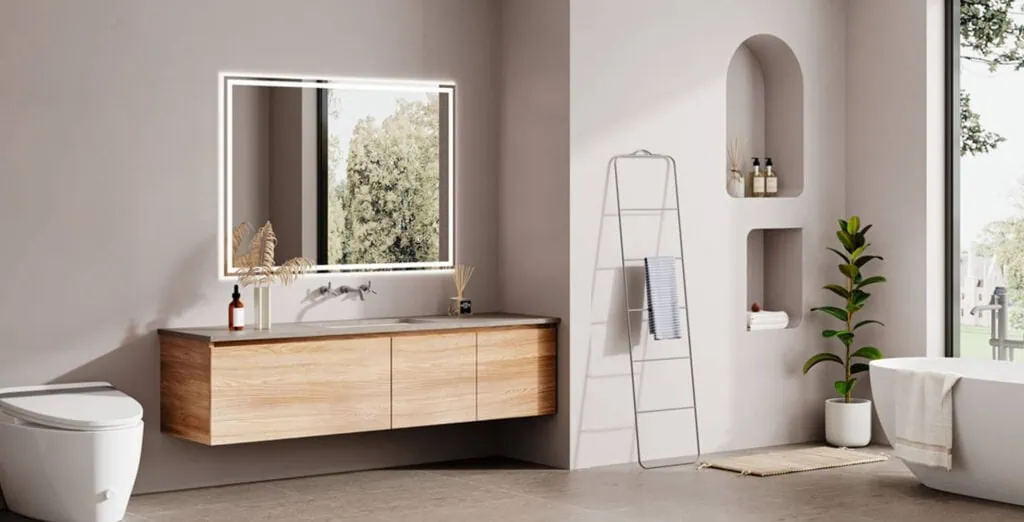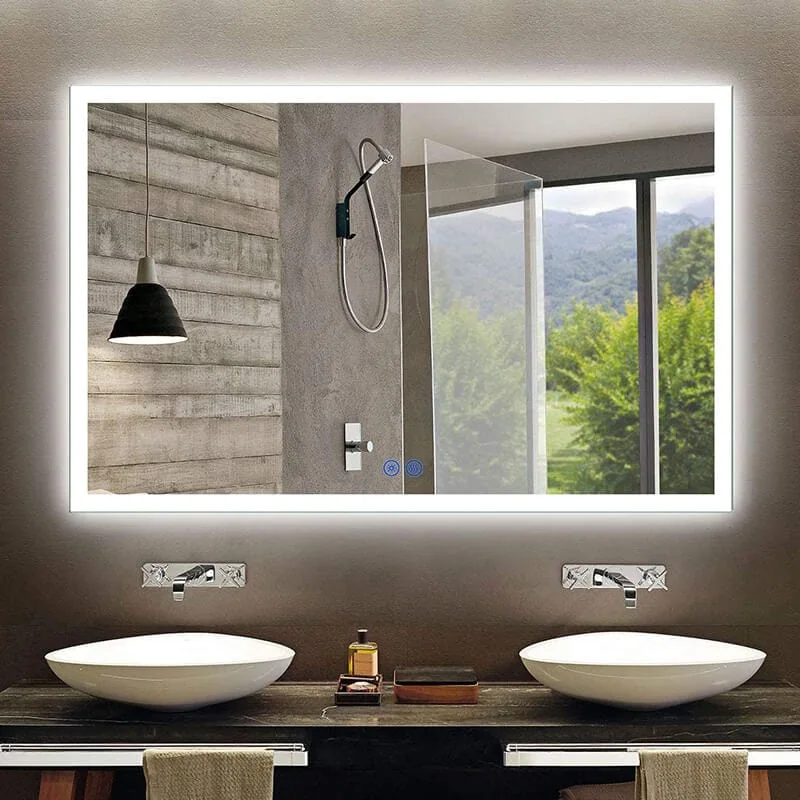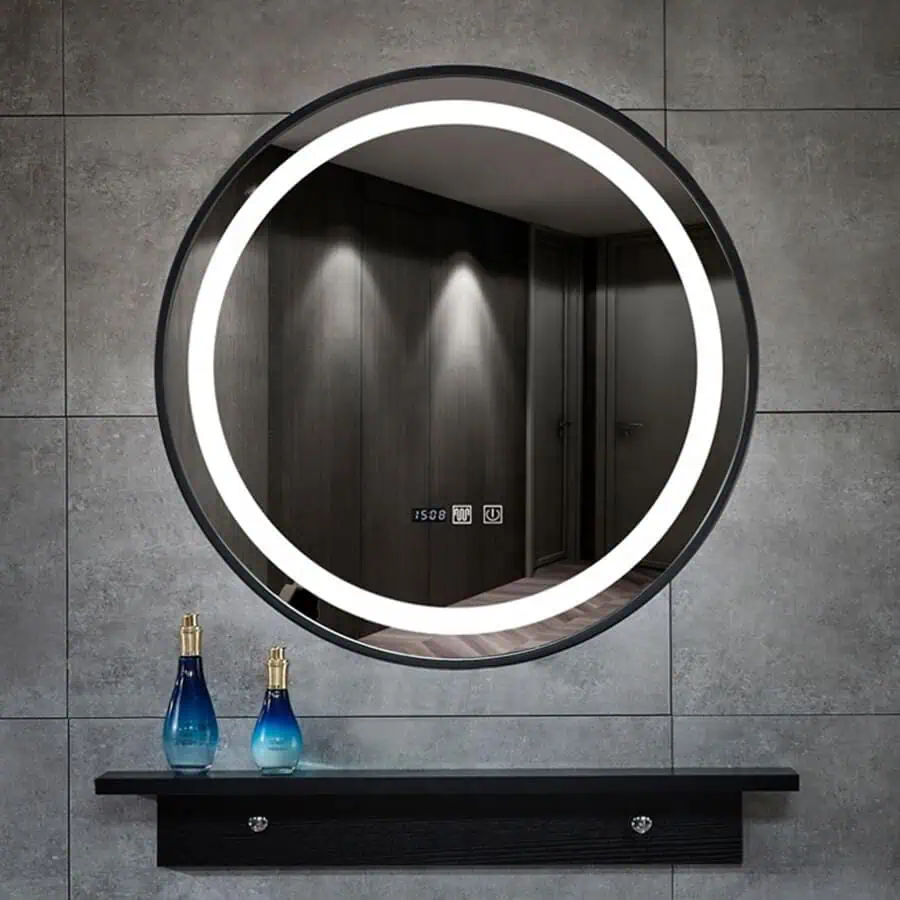¿Alguna vez has notado que te ves mejor en el espejo que en las fotografías?? I think it’s safe to say most people have had that experience and have wondered why there’s such a discrepancy. There are several reasons. Lighting, angles, and how cameras distort our images all come into play and impact how we see ourselves. Let’s talk about why your mirror reflection looks better than your photos.
The difference comes from your familiarity with the mirror, where you control lighting and angles. En contraste, photos often capture you from unexpected perspectives with less controlled lighting, leading to a less flattering appearance.
Curious to learn more? Please read on to find out the main reasons behind this common phenomenon.

Tabla de contenido
PalancaHow Does Familiarity Affect Your Reflection?
The same thing happens when you see yourself in the mirror. What do you see? Something that’s familiar. What happens? The mirror reflects exactly what you see every day. As you see it over and over and over again, your brain gets used to it.
Because you see yourself in the espejo every day, it’s the image of you that you are used to and comfortable with. When you see a photo of yourself, you see an image of yourself that is flipped or different from what you are used to, and you feel uncomfortable.
This is an example of the “mere exposure effect” where the more you are exposed to something, the more comfortable you become with it. Since you see the mirror version of yourself all the time, it is the version of you with which you are comfortable. Even though photos of yourself might be a more accurate portrayal of how you look to other people, the you in the mirror is the image you like.
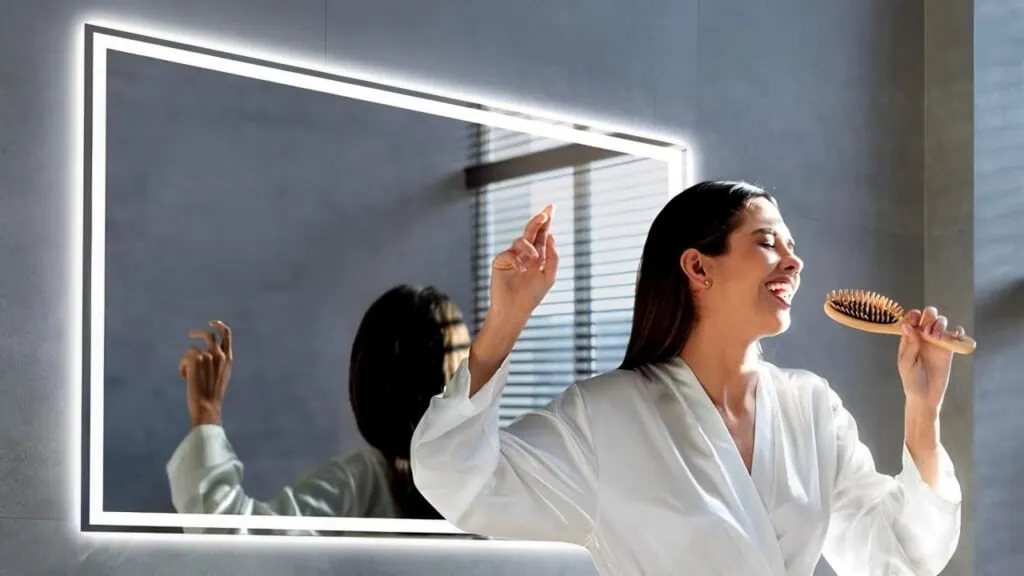
Does Lighting Influence How You Look?
When you’re in front of a mirror, you’re often controlling the lighting in that room to make it look good, whereas in the photo, the lighting could be a little more free-ranging, and a little less controllable.
Mirrors allow you to manipulate the lighting, which can make you look better in the mirror than in a photograph, where the lighting might be less in your control and more harsh.
One of the best experiences you can have in front of mirrors is with an espejo LED because the lighting is consistent, adjustable, and exactly what you need to see yourself 100% perfectly every single time.

What Role Does the Mirror Angle Play?
When you look at yourself in the mirror, you naturally stand at your most flattering angle. You control how your face and body appear, which may not always be the case in a photo.
When you look in the mirror, your body is angled (even slightly) to its most flattering. You control how your face appears, how your body appears, and even the lighting. You have complete control over the angle. That’s not true with a photograph.
If a photo is taken from an awkward angle, your face and body can appear distorted. You see the photo and think, “That’s not me! I don’t look like that…”

Why Does Camera Distortion Make You Look Different?
Camera lenses, particularly on smartphones, have a distorted impact on our looks. This is due to the focal length of the lens, which can change the shape of our faces and make them appear wider or narrower than they really are.
Shooting with a wide-angle lens can produce facial distortion, especially if the camera is close to the person’s face. This is another example of how a photograph may not show an accurate representation of someone compared to what you see in the mirror.
This is especially noticeable in selfies or close-up photos where the lens distorts your facial features. You can easily look very different from the familiar reflection you see in the espejo.

How Do You Perceive Yourself Differently in Photos?
In a picture, you’re seeing yourself from a perspective that someone else would see, not the way you see yourself in the mirror. It can feel strange because it’s the opposite of the mirrored image you’re used to seeing. The image in the photo is not reversed; in the photo, you see yourself the way other people see you, not the way you see yourself.
It feels weird to see yourself unflipped in a photo because it looks different from the mirrored image you’re used to seeing. This is another reason that people often think they look worse in photos.
Because most people are used to seeing themselves in mirrors, the reflected image becomes the mental standard by which they compare how they look. This can create the feeling that the picture doesn’t look quite right or is less attractive.

What Are the Benefits of LED Mirrors?
LED mirrors offer more than a reflection. Often they include features such as anti-diente capabilities, touch controls, and adjustable brightness. All of these features make an LED mirror an excellent and versatile addition to any bathroom or dressing room.
For people who spend a lot of time looking in the mirror, espejos LED just make life easier. They are convenient and functional. Además, the experience they provide is far superior to that of a traditional mirror.

Frontlit LED Mirrors vs. Backlit LED Mirrors
Both frontlit and backlit LED mirrors offer benefits, depending on the context.
Frontlit mirrors are great for tasks that require precision, like putting on makeup or shaving. En contraste, backlit mirrors cast a softer, ambient glow that’s perfect for creating a peaceful and relaxing atmosphere.
Frontlit LED mirrors deliver direct light, making them perfect for detail work, while backlit mirrors create a softer, diffused light that provides a more ambient feeling.
The one you choose depends on what you need. For detail work like grooming, makeup, or shaving, you’ll want a frontlit mirror because the lighting is more direct and targeted. If you’re looking for mood lighting or something to make your space look elegant and cozy, a backlit mirror is the way to go.

Are LED Mirrors Safe?
LED mirrors are safe, especially in bathrooms or other locations with high moisture levels. Most LED mirrors are tested and certified for use in wet environments, so you don’t have to worry about safety.
LED mirrors are generally water-resistant and designed to be safe for use in high-humidity areas, such as a bathroom.
Just make sure to choose something that’s certified and safe so you don’t have to worry about electrical hazards, especially in wet areas like bathrooms.
How Long Do LED Mirrors Last?
The mirrors are also known for lasting a long time compared to traditional lighting solutions. A high-quality LED mirror can last over 50,000 hours. That’s a lot of selfies and shaves without having to change bulbs.
Most espejos LED last at least 50,000 hours, so they are very long-lasting and durable for both residential and commercial use.
This extended lifespan, combined with the energy efficiency of LED mirrors, can save quite a bit of money over the long term, making them a cost-effective solution when you’re looking for a reliable and eco-friendly light source.
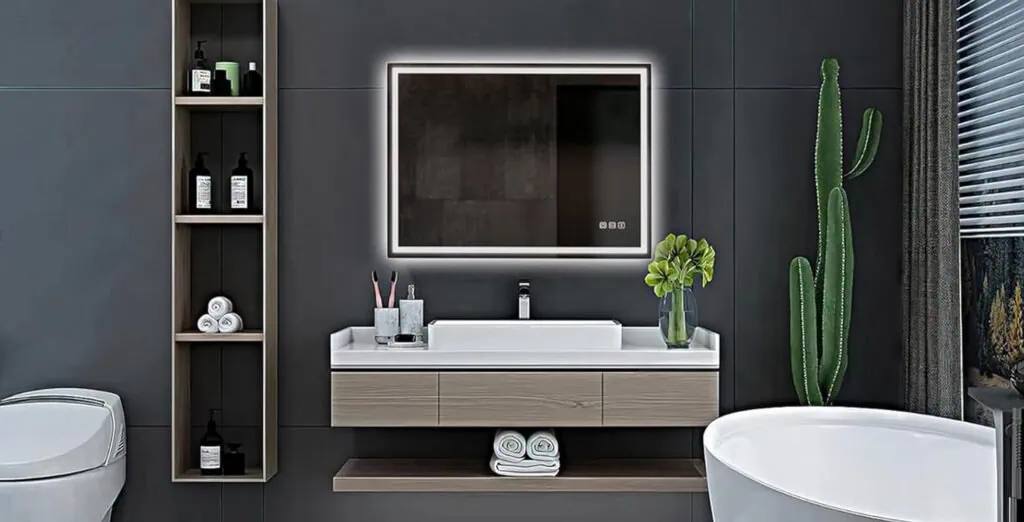
Are LED Mirrors Expensive to Run?
Energy efficiency is another advantage. LED lights use a lot less power than the old incandescent bulbs we grew up with, which can save you a lot of money over time.
LED mirrors are energy-efficient. They don’t use much electricity at all, which makes them a cost-effective and eco-friendly option.Even with regular use, you won’t notice a significant increase in your electric bill if you have an LED mirror.
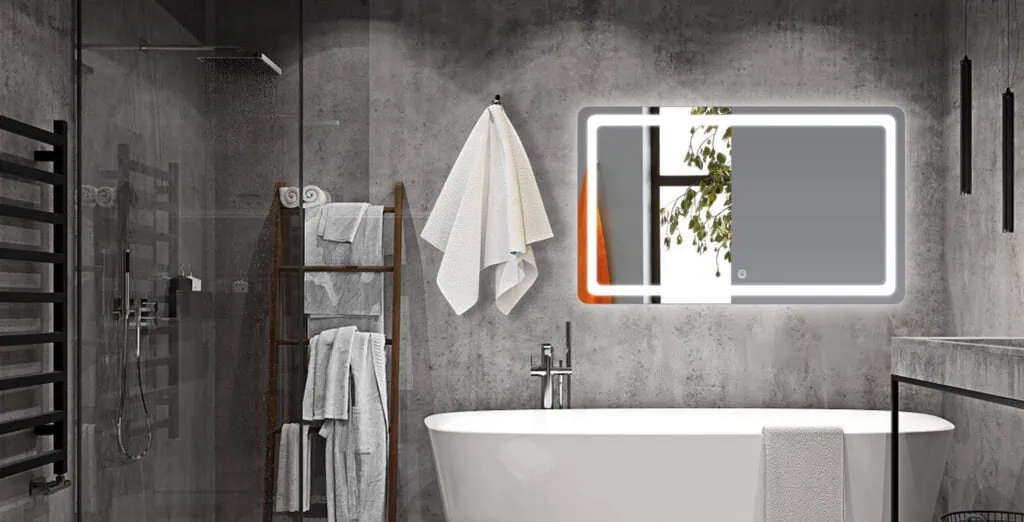
Resumen
Whether it’s the way you perceive yourself in the mirror or how LED mirrors enhance your daily routine, there are several reasons why the two images appear different. LED mirrors enhance the experience by providing adjustable lighting options, being energy-efficient, and delivering long-lasting performance. LED mirrors are a great addition to any space.

